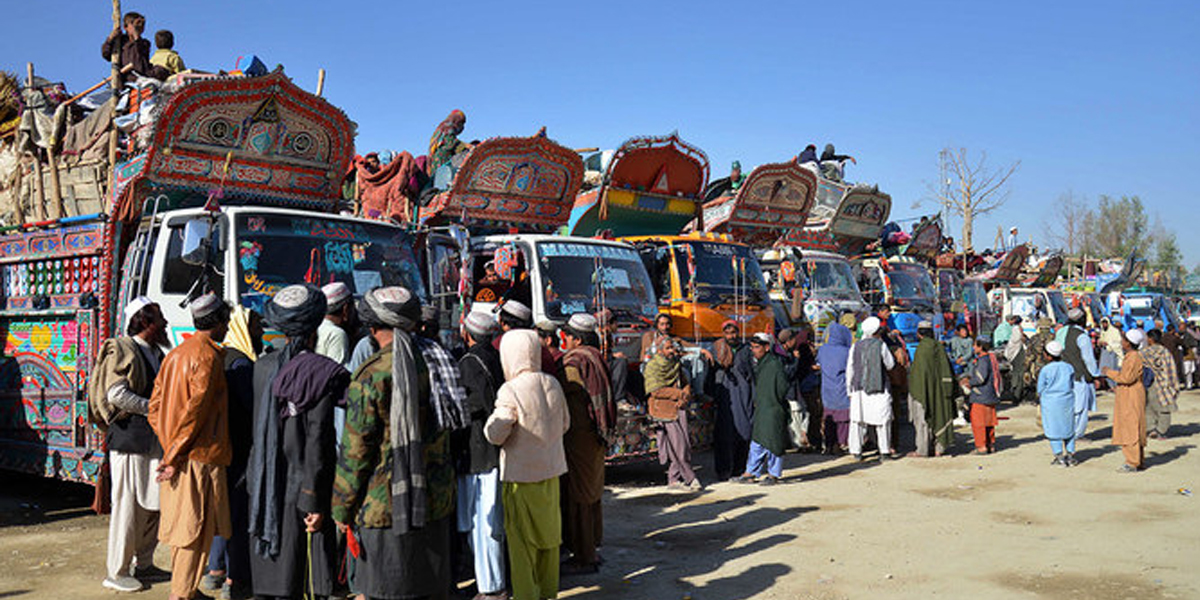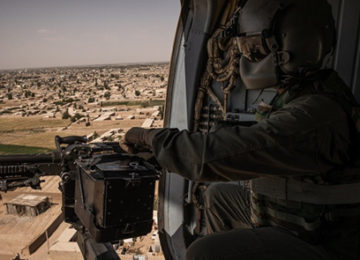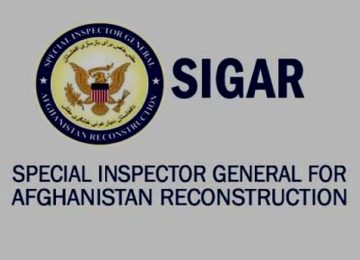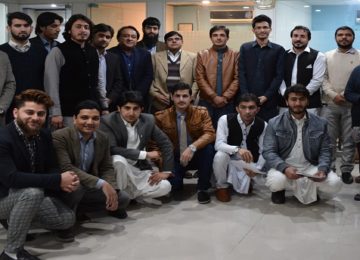Amidst border disputes, security concerns, and refugee crises, Pakistan and Afghanistan seek to forge stronger ties. However, challenges persist as officials on both sides advocate for cooperation. Will these shared aspirations materialize in the face of existing complexities and longstanding disagreements?
In the wake of a newly formed coalition government in Pakistan, Afghanistan’s Islamic Emirate spokesperson, Zabihullah Mujahid, has stressed the critical need for strong and friendly relations between the two neighbouring nations.
Highlighting the Islamic Emirate’s longstanding commitment to maintaining cordial relations with all neighbouring countries, particularly Pakistan, Mujahid called upon the new Pakistani government to exhibit flexibility regarding the deportation of Afghan refugees. “Regarding migrants, we ask them to be flexible. They have hosted migrants for many years, and from now on, they should consider Afghanistan’s relations with Pakistan until the migrants return.”
Emphasizing the importance of addressing issues such as trade facilitation and matters concerning the Durand Line, he underlined the necessity for mutual understanding and resolution of longstanding grievances.
However, concerns persist regarding the stance of the new Pakistani government on resolving existing issues between the two nations. While the new government is urged to prioritize constructive engagement and refrain from forced expulsion of Afghan refugees, recent developments indicate a significant number of deportations since November, drawing criticism from Afghan officials.
On the other hand, it appears that Pakistan’s approach towards a cordial relationship remains contingent upon the cooperation of the Afghan authorities on counter-terrorism. At a recent Pak-Afghan Stakeholders‘ Dialogue organized by the Center for Research and Security Studies (CRSS) and its Afghan counterpart Organization for Economic Studies and Peace (OESP), Ambassador Asif Durrani, Pakistan’s Special Envoy to Afghanistan, emphasized the need for cooperation in countering terrorism (CT) efforts and promoting peace in the region. He added that terrorist groups pose a threat not only to Afghanistan but also to the wider region and the world. He stressed the importance of collective efforts to combat terrorism and promote sustainable regional peace[1].
The envoy addressed issues related to trade and border management, emphasising the importance of documentation such as passports and CNICs for security purposes. He advocated the necessity of implementing biometric measures for border cross-border movement of people to bolster security and minimise threats from non-state actors.
Conversely, Senator Mushahid Hussain called for a reassessment of Pakistan’s Afghan policy, emphasizing the importance of stability in Afghanistan and advocating for an inclusive approach towards Afghan migrants[2]. He highlighted the interconnectedness between Pakistan’s internal security and regional geopolitics, stressing the need for regional cooperation and collaboration to foster peace and stability in the region. Hussain also urged to delink trade from politics.
The overall ongoing discourse illustrates a delicate balancing act between fostering positive relations and addressing pressing concerns. While Afghanistan’s Islamic Emirate emphasizes the need for collaboration and understanding, Pakistan underscores the importance of security and counterterrorism efforts. The recent deportations of Afghan refugees, Afghan Taliban’s inaction against the issue of TTP, and divergent opinions on both ends highlight the complexities in the relationship. However, amidst these challenges, there is a shared recognition of the necessity for stability, inclusivity, and regional cooperation to ensure lasting peace in the region.
How earnestly can Pakistan and Afghanistan pursue their shared goals of regional stability and economic integration while effectively addressing the enduring deadlock in crucial areas of disagreement? With the formation of a new coalition government in Pakistan, the upcoming months hold significant importance. The former interim government’s Afghan policy, perceived by analysts as influenced by Pakistan’s traditional military stance, raises questions about the direction of future policies. Will the new leadership reassess strategies, prioritizing stability and constructive engagement over measures detrimental to economic and people-to-people ties, favouring geoeconomics over geopolitics? Simultaneously, while Afghan authorities express intentions for friendly relations and cooperation, tangible progress remains elusive. The Taliban’s ability to tackle terrorism will be pivotal in achieving stability and amicable relations with neighbours and the international community at large.
Despite their shared goals, Pakistan and Afghanistan approach the issues at hand with different perspectives and strategies. Such a crisis underscores the urgent need for both nations to engage in constructive dialogue and devise mutually agreed, transparent, and people-centric policies in the interest of the entire region.
[1] https://www.dawn.com/news/1820672/biometric-measures-necessary-to-enhance-security-says-special-envoy#:~:text=ISLAMABAD%3A%20Pakistan’s%20Special%20Representative%20on,threats%20from%20non%2Dstate%20actors.
[2] https://www.dawn.com/news/1819672
Elsa Imdad
Elsa Imdad is a USG Alumna. She holds a bachelors in modern languages with an English major and Spanish minor. She has previously been part of American Spaces in Pakistan and now works as a Project Coordinator at the Center for Research and Security Studies. She is also a weekly contributor for Matrix. Her interests include public diplomacy, language teaching, peace and conflict resolution, capacity building for marginalized groups, etc.









